| << Chapter < Page | Chapter >> Page > |
Before you get started, take this readiness quiz.
Every linear equation can be represented by a unique line that shows all the solutions of the equation. We have seen that when graphing a line by plotting points, you can use any three solutions to graph. This means that two people graphing the line might use different sets of three points.
At first glance, their two lines might not appear to be the same, since they would have different points labeled. But if all the work was done correctly, the lines should be exactly the same. One way to recognize that they are indeed the same line is to look at where the line crosses the x - axis and the y - axis. These points are called the intercepts of the line.
The points where a line crosses the x - axis and the y - axis are called the intercepts of a line .
Let’s look at the graphs of the lines in [link] .
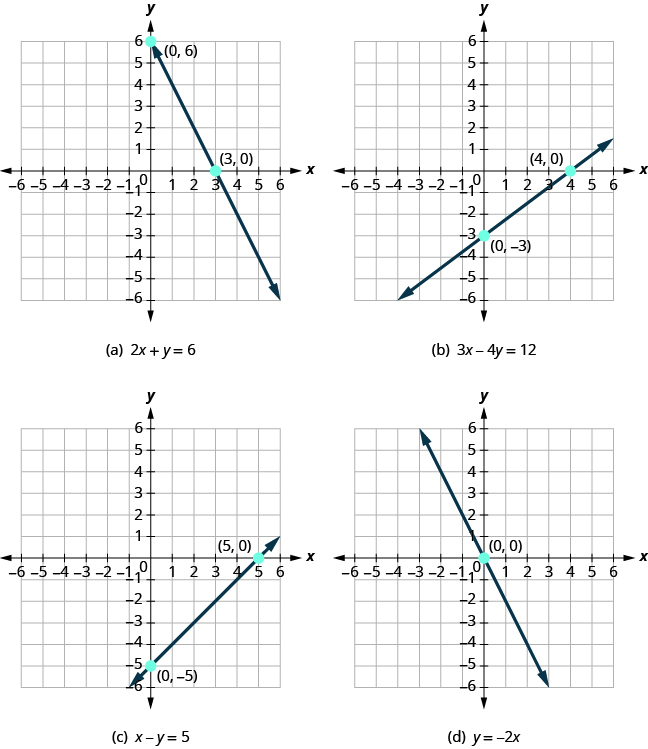
First, notice where each of these lines crosses the negative axis. See [link] .
| Figure | The line crosses the x - axis at: | Ordered pair of this point |
| Figure (a) | 3 | |
| Figure (b) | 4 | |
| Figure (c) | 5 | |
| Figure (d) | 0 |
Do you see a pattern?
For each row, the y - coordinate of the point where the line crosses the x - axis is zero. The point where the line crosses the x - axis has the form and is called the x - intercept of a line . The x - intercept occurs when is zero.
Now, let’s look at the points where these lines cross the y - axis. See [link] .
| Figure | The line crosses the y -axis at: | Ordered pair for this point |
| Figure (a) | 6 | |
| Figure (b) | ||
| Figure (c) | ||
| Figure (d) | 0 |
What is the pattern here?
In each row, the x - coordinate of the point where the line crosses the y - axis is zero. The point where the line crosses the y - axis has the form and is called the y- intercept of the line. The y - intercept occurs when is zero.
The x - intercept is the point where the line crosses the x - axis.
The
y - intercept is the point
where the line crosses the
y - axis.
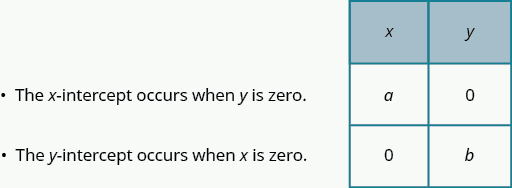
Find the x - and y - intercepts on each graph.
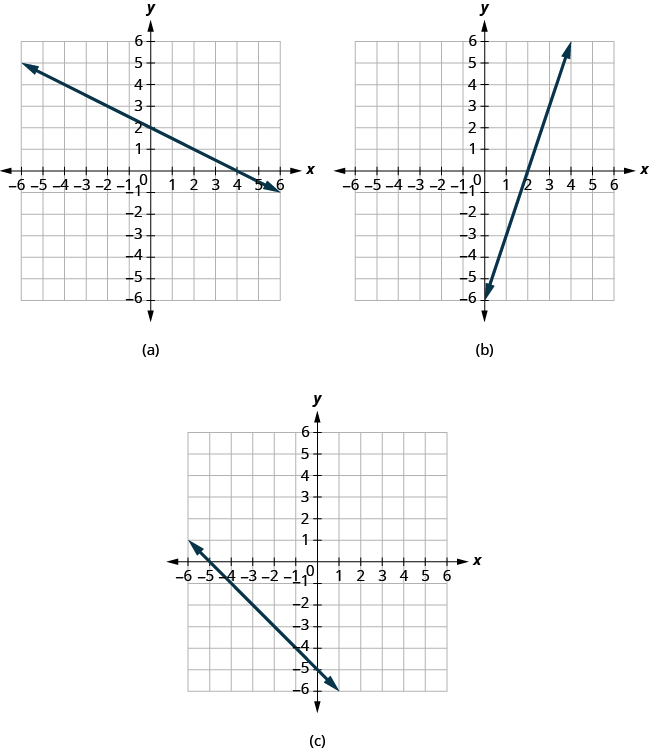
Find the x - and y - intercepts on the graph.
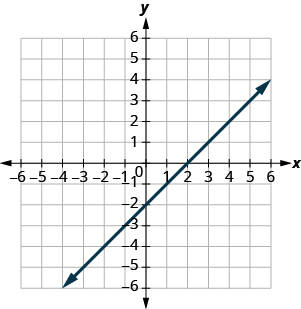
x - intercept: ; y - intercept:
Find the x - and y - intercepts on the graph.
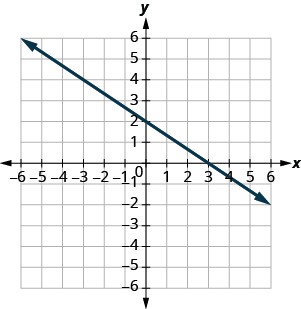
x - intercept: , y - intercept:
Recognizing that the x - intercept occurs when y is zero and that the y - intercept occurs when x is zero, gives us a method to find the intercepts of a line from its equation. To find the x - intercept, let and solve for x . To find the y - intercept , let and solve for y .

Notification Switch
Would you like to follow the 'Elementary algebra' conversation and receive update notifications?